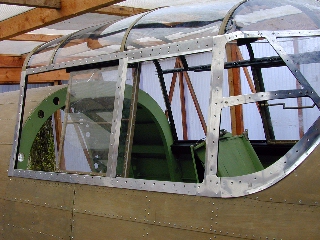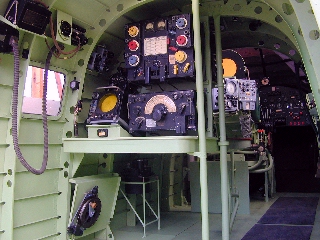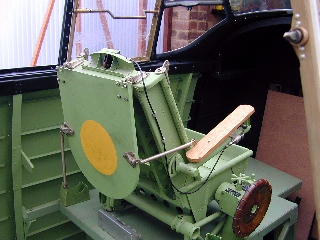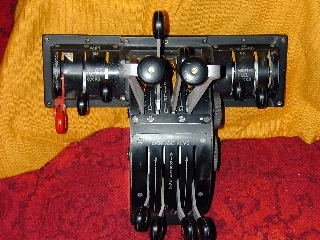Aircraft reference and information.
 
Here is a
link to a superb Lancaster project, the story of the construction of
the Pilot's, Navigator's and Radio Operator's section of an Avro Lancaster
Bomber of WWII with working radar, navigation aids and sound simulation of the 4
Merlin's by
Norman
Groom.
Now complete
and on display at
Pitstone
Museum.

Pictures of
Norman's Superb Lancaster
 
The Lancaster flew for the first time on
January 9,1941 as a four-engine development of the Avro Manchester. The RAF
began to equip with Mk Is in early 1942 and used them first on March 10th
against targets in Essen. Altogether, more than 7,300 Lancaster's were produced
in Britain as Mks I to VII and Canada as Mk Xs, and they dropped more than
608,000 tons of bombs on 156,000 wartime missions. Some Lancaster's were still
flying with the RAF in the early 1950s as maritime-reconnaissance,
photo-reconnaissance and rescue aircraft.
 
Like all successful aircraft the
Lancaster not only looked good but its flying characteristics matched its
appearance. It is all the more ironic therefore that the birth of Avro's mighty
machine owed so much to the failure of its immediate predecessor, the twin
engine Avro Manchester. The Avro 683 evolved almost accidentally as a result of
recurrent failure of the insufficiently developed Rolls Royce Vulture engines
installed in the Manchester.
 
Don't
delay LOOK at Norman's site and go and see his Lancaster
|